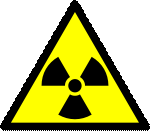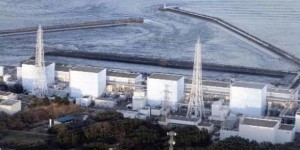
All forms of radiations occur naturally in the environment. On an average, every human being would be struck by around 15000 radiation particles per second. But this is not a grave problem as the probability of this causing a genetic disease or causing a cancer would be one chance in 30 million billion.
But the radiations from a nuclear reactor have a different story. This radiation contains sub atomic particles travelling at the speed of light. They can penetrate the human body and can cause cancer or other genetic disorders. Nuclear radiations usually emanate from nuclear plant operations, any accidents in nuclear sites, escape of radiation during transport of nuclear materials, etc.

This radiation is likely to increase the probability of humans getting cancer by 0.002% or reduces our life expectancy by an hour. This is very minimal when compared to other forms or radiations from electricity, burning coal, gas, etc which reduce our life expectancy by 30 to 40 days.M

Nuclear reactor in Fukushima, Japan
The impact of nuclear radiations on the body depends on the radioactive material which is released and the duration of exposure. Exposure to high levels can cause Acute Radiation Syndrome also called as ARS and even death. This Syndrome will cause nausea, vomiting, fatigue, hair loss, and diarrhoea. At higher levels, the victims who are exposed can die within weeks due to scorched colon according to scientists.
Nuclear radiation disrupts the ability of cells to divide and produce. The cells in the large intestine and the blood-forming cells in bone are highly susceptible to radiation.
Some types of radioactive materials like Iodine is easily absorbed by the body and the human survives as Iodine will be directly absorbed by the thyroid gland or strontium which will enter the bone directly. Other types of radioactive materials, such as tritium, will be quickly removed the body.
Children aged less than 18 years, infants, and foetus in the womb is the group most at risk of exposure to radiation because the cells in their bodies are still actively dividing.
Reactor accidents :-Risks from reactor accidents have been roughly estimated as follows. A fuel melt-down might be expected once in 20,000 years of reactor operation. In 2 out of 3 melt-downs there would be no deaths, in 1 out of 5 there would be over 1000 deaths, and in 1 out of 100,000 there would be 50,000 deaths. The average for all meltdowns would be 400 deaths.
•

 Death clock is an entertainment application which can give an indicative date of death. Our death clock and death meter are very popular ones in the 20th centuary. This application relies on aging and health data to arrive at the estimation. This is also the first Android application to tell when you will die.
Death clock is an entertainment application which can give an indicative date of death. Our death clock and death meter are very popular ones in the 20th centuary. This application relies on aging and health data to arrive at the estimation. This is also the first Android application to tell when you will die.
